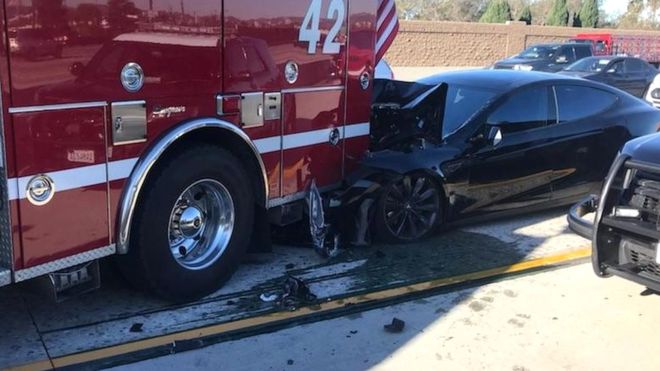January 28, 2018
Space Gets an Artificial Star. Astronomers Ask: Do We Need More?
Astronomers respond to the Humanity Star: Although the object “sounds like jolly nice fun,” it also “fills me with a big dose of dread,” wrote Caleb A. Scharf, director of the Columbia Astrobiology Center at Columbia University.
January 27, 2018
The Oceans Have Never Been Hotter Than They Are Now
“The ocean heat records are so impressive because they’re absolutely on a steady warming trend,” Robert Anderson, a geochemist at Columbia University, told VICE News. “People who point to pauses in global warming haven’t looked at the warming of the oceans.”
January 25, 2018
Tesla Crash Highlights a Problem: When Cars are Partly Self-driving, Humans Don’t Feel Responsible
"There's something we used to call split responsibility," said Hod Lipson, director of Columbia University's Creative Machines Lab. "If you give the same responsibility to two people, they each will feel safe to drop the ball. Nobody has to be 100%, and that's a dangerous thing."
January 23, 2018
Fighting Climate Change? We’re Not Even Landing a Punch
“We keep doing the same thing over and over again and expecting a different outcome,” said Scott Barrett, an expert on international cooperation and coordination at Columbia University who was once a lead author of the Intergovernmental Panel on Climate Change.
January 21, 2018
Here’s How to Make Sure Hawaii’s Missile Warning Fiasco Isn’t Repeated
Steve Bellovin, a professor in the computer science department and affiliate faculty at the law school at Columbia University, offers tips for preventing another false missile-attack alert.
January 18, 2018
2017 Was One of the Hottest Years on Record. And That Was Without El Niño.
The world is now experiencing a weak La Niña, with ocean temperatures in the Pacific slightly below normal, said Anthony Barnston, chief forecaster with the International Research Institute for Climate and Society at Columbia University.
January 17, 2018
What Can The Tri-State Area Expect For The Rest Of Winter?
Richard Seager, a research professor at Lamont Dougherty Earth Observatory, said the main driving force this winter is La Niña, a cold water pileup in the equatorial Pacific. It favors warm and dry weather in the southwest and cool and wet weather over the northern U.S.







